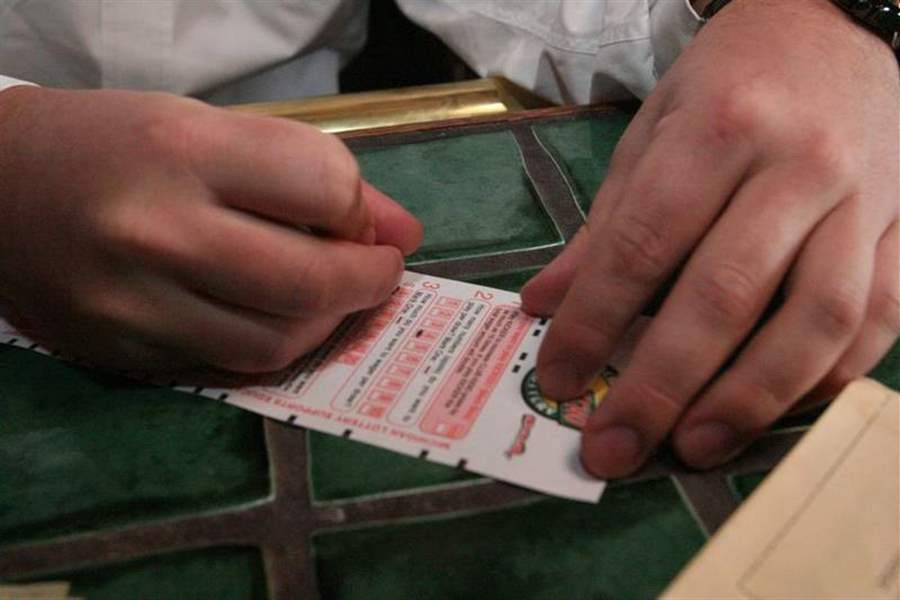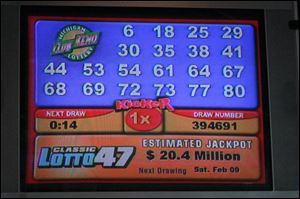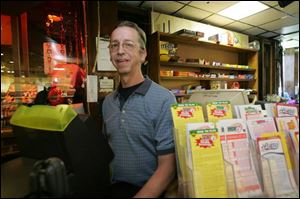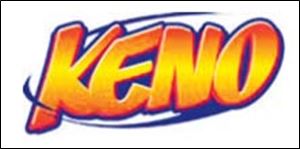
Ohio businesses race for piece of state Keno action
7/6/2008
The Ohio Lottery Commission says it knew what type of lottery agents to pursue, including racetracks.

Citing the success of games in other states, including Michigan s Club Keno, the Ohio Lottery Commission says it knew what type of lottery agents to pursue, including racetracks.
COLUMBUS - Voters rejected the idea of giving racetracks casinolike slot machines, but Toledo's Raceway Park and other horse tracks wasted no time signing up for Ohio's newest - and legal - electronic game, Keno.
Bowling alleys and bars fumed when lawmakers took the cash carrot out of skill-based games like Tic Tac Fruit. But they've lined up in droves to get a piece of the Keno action in the state's own fast-paced game.
Just over 1,000 taverns, eating establishments, racetracks, bowling alleys, take-out joints, and fraternal and veterans' organizations - including more than 150 in northwest Ohio - applied for licenses with less than a month to go before the first Keno numbers are drawn on Aug. 4.
Seventy percent already have been approved by the Ohio Lottery Commission. All have Class D liquor licenses.
Despite getting started more than a month later than originally hoped, the commission still hopes to hit its target of netting $73 million by the end of the fiscal year on June 30, 2009. Those profits, like those for other lottery games, would be dedicated to schools.
Raceway Park saw the success of Club Keno across the border in Michigan and was eager to be dealt into the game. In the process, the track will become a full-service lottery ticket retailer, a role it gave up years ago.
"It's another option that we can offer customers for wagering and gambling," said John McNamara of the harness-racing track's customer service and marketing division. "We're in the gambling business. Right now we just have pari-mutuel wagering."

Vern Vogt of Toledo Sports Center hopes Keno may be at least part of the answer to a loss of revenue he attributes to Ohio s indoor smoking ban and the loss of skill-based game machines.
The machines, he said, are not stand-ins for slot machines used at tracks in most neighboring states. The last attempt to bring slots to Ohio, a proposed constitutional amendment linking some proceeds to college scholarships, failed at the polls.
"They are totally different," he said. "Keno is just like the lottery. There are more frequent daily picks, but by no means is it a substitute [for slots]."
All seven of the state's racetracks have applied for licenses, as well as Ohio's sole off-track betting parlor, Cedar Downs in Sandusky.
Similar to the lottery's Ten-Oh! game that has two drawings daily, Keno numbers would be drawn every four minutes. Players would place bets and choose between one and 10 numbers out of 80 and then win jackpots based on how many numbers match among 20 selected by a statewide computer system. The maximum jackpot could be $2 million for a $20 bet that places all 10 of its numbers among the 20 displayed on the monitor.

The Ohio Lottery Commission says it knew what type of lottery agents to pursue, including racetracks.
Dan Metelsky, a former state representative from Lorain who serves as the lottery's deputy director of sales management, said the commission knew from successes in Michigan, New York, and Maryland what kind of lottery agent to pursue. That included racetracks.
"They're very excited," he said. "They're in a highly competitive environment. They're competing now with West Virginia and Pennsylvania, in particular, which have racinos [combined race tracks and casinos]. This creates an ability to have higher purses and attract a better caliber of horses. It's a great opportunity to recapture some Ohio dollars."
A business perspective
Vern Vogt, general manager of Toledo Sports Center at 1516 Starr Ave., played Keno when he visited Las Vegas. He thought it was boring.
But now he hopes the rapid-paced lottery version may be at least part of the answer to a loss of revenue he attributes to Ohio's indoor smoking ban and the loss of skill-based game machines.
"People don't stick around like they used to," the bowling alley operator said. "We're hoping that maybe this is another way to keep people here and replace the bar business. Customers are here for two and a half to three hours. That's how long it takes to compete. For the smokers, that's difficult. They have to go outside, and they have to change their shoes to go outside."

<BR> Players bet between $1 and $20. <BR> Players pick 1 to 10 numbers from a choice of 80. <BR> Monitors display 20 numbers selected randomly by a statewide computer system every four minutes. <BR> Payouts are based on the size of the bet and how many numbers match, with the maximum jackpot of $2 million for a $20 bet matching all 10 numbers.
As for whether lottery Keno will replace skill-based games, Mr. Vogt said, "We'll see."
"The commissions aren't quite as high," he said. "It would have been nice if they had just regulated the skill-based games and limited us to so many. We only had two or three here, but another $200 to $300 a week helps. It was one thing to keep people around.
"But the bowling center has a bit of a problem. The game must be played within its enclosed bar area, and tickets can't be sold at the front counter where the center now sells tickets for other lottery games. During slow seasons, like now, the bar is manned only a couple of nights a week.
"We can't afford to put somebody in the bar," Mr. Vogt said. "Unless we see a lot of play, we've got a problem. It would be much easier if we could sell at the front counter like regular lottery tickets."
While a number of grills, pizza shops, and other eating establishments have signed on, the list of licensees to date has few family-style restaurants. Particularly absent are big chains such as T.G.I. Friday's that have liquor licenses. An exception to that rule is a number of Fricker's restaurants that have applied.
"There are no lottery sales in Wal-Mart or Target," said Mr. Metelsky. "There's a reason. Their corporate philosophy has not moved into offering lottery products. It's absolutely no different from what we're seeing in, say, the Applebee's chain. They have a bar that's usually separated from the rest of the restaurant. They have a Class D restaurant, but they have not chosen to do Keno. That's OK. We respect that."
The Ohio Roundtable, an ardent opponent of expanded gambling, contends that Keno is not your typical lottery game where, except for instant scratch-off tickets, players place their bets and wait. Ohio's lottery Keno will play every four minutes.
"It definitely raises some concern," said Rob Walgate, vice president of the group. "We just got done kicking out machines, and now we're bringing in a new set of machines with the government in charge of them. It raises some eyebrows. It sends a mixed message."
The lottery's goal was to have 1,000 retailers on board by the commission's original target start date of July 1. It just passed that threshold. The game's start was delayed when the Ohio Controlling Board, a legislative panel that reviews big-ticket spending requests, was slow in approving the purchase of computer monitors and other equipment needed to run the games.
Gov. Ted Strickland, who opposed the 2006 casino constitutional amendment and successfully fought the skill-based games, drew criticism when he proposed Keno as an extension of the existing voter-approved lottery to prevent budget cuts in education funding. A legislative attempt to prevent the move fizzled.
Contact Jim Provance at:
jprovance@theblade.com
or 614-221-0496.